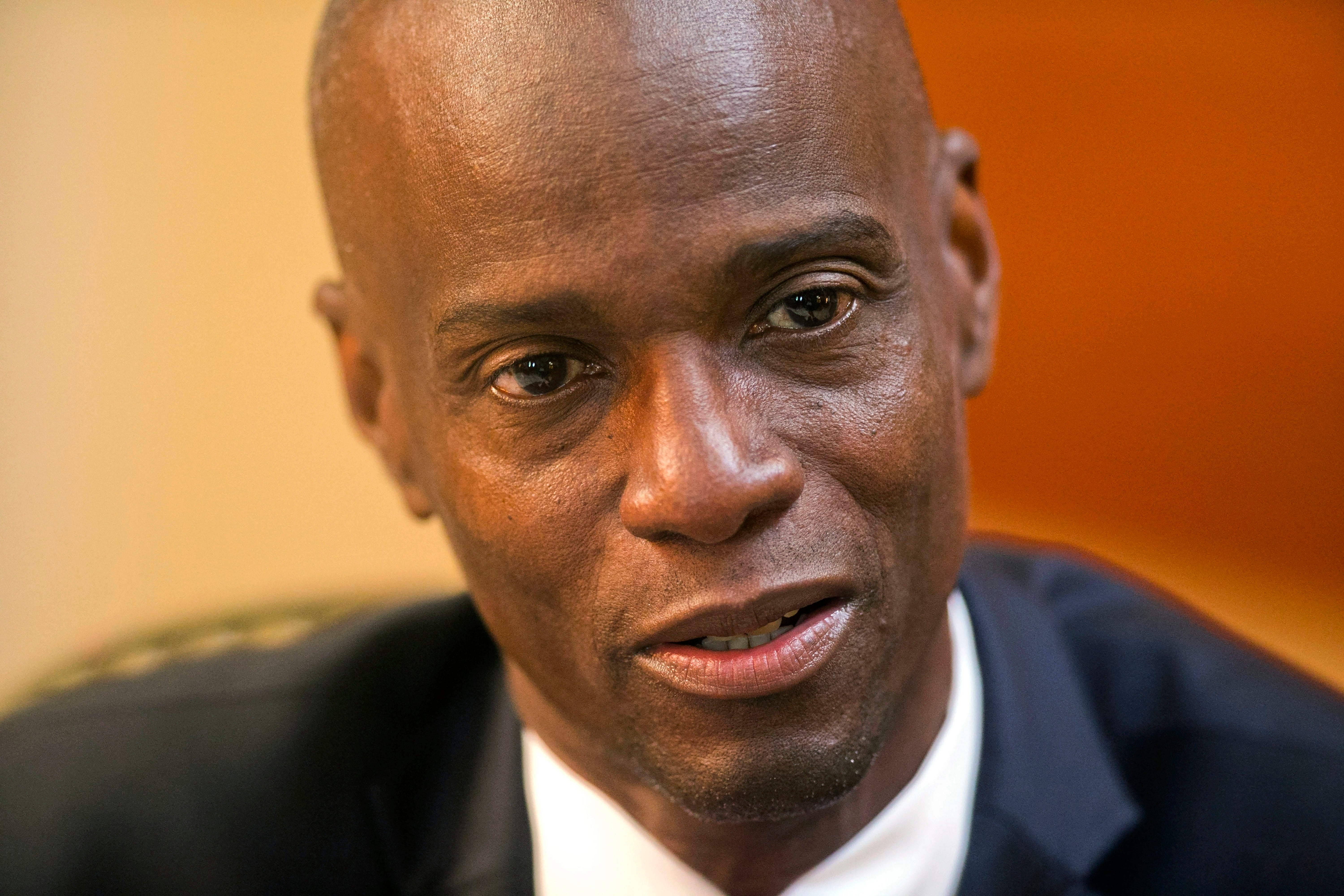Widow of assassinated Haiti president Jovenel Moise is charged over his killing
Martine Moïse was accused of conspiring with ex-prime minister Claude Joseph to kill the president in order to replace him herself
Your support helps us to tell the story
From reproductive rights to climate change to Big Tech, The Independent is on the ground when the story is developing. Whether it's investigating the financials of Elon Musk's pro-Trump PAC or producing our latest documentary, 'The A Word', which shines a light on the American women fighting for reproductive rights, we know how important it is to parse out the facts from the messaging.
At such a critical moment in US history, we need reporters on the ground. Your donation allows us to keep sending journalists to speak to both sides of the story.
The Independent is trusted by Americans across the entire political spectrum. And unlike many other quality news outlets, we choose not to lock Americans out of our reporting and analysis with paywalls. We believe quality journalism should be available to everyone, paid for by those who can afford it.
Your support makes all the difference.The widow of the former president of Haiti, Jovenel Moïse, who was assassinated in July 2021, has been indicted in connection with his killing.
A judge investigating the death of Moïse indicted nearly 50 suspects in a 122-page ruling on Monday, including Martine Moïse, ex-prime minister Claude Joseph and the former chief of Haiti’s National Police, Léon Charles, among others.
Mr Charles, who now serves as Haiti’s permanent representative to the Organization of the American States, faces the most serious charges, including attempted murder; possession and illegal carrying of weapons; conspiracy against the internal security of the state; and criminal association.
Meanwhile, Martine Moïse was accused of conspiring with Mr Joseph to kill the president in order to replace him herself.
Others including Christian Emmanuel Sanon, a Haitian-American pastor who visualized himself as Haiti’s next president, Joseph Vincent, a Haitian-American and former informant for the US Drug Enforcement Administration, and Dimitri Hérard, presidential security chief, John Joël Joseph, a former Haitian senator, and Windelle Coq, a Haitian senator whom authorities say is a fugitive, were also charged.
Eleven suspects have so far faced federal charges in the US for the killing of Moïse, including Mr Sanon and Mr Vincent, who were extradited to the US.
The US has insisted the case falls within its jurisdiction because part of the assassination plot was hatched in South Florida.
Three have been sentenced in the US, including John Joël Joseph, who was sentenced to life in prison for his role in Moïse’s death.
Meanwhile, more than 40 suspects are being held in prison in Haiti awaiting trial.

The report released on Monday said authorities charged the suspects after they were able to discover “the degree of participation and the role of each of the groups of delinquents who joined together under the influence of Machiavellian plans developed between authors, co-authors, accomplices and henchmen for the purposes of assassinating President Jovenel Moïse.”
In the document, Judge Walther Wesser Voltaire ordered the arrest and trial of some 50 people involved in the gunning down of Moïse at his private residence in July 2021.
US prosecutors have previously said a group of about 20 assailants, most of them Colombian mercenaries, were involved in a plot to kidnap Moïse and replace him with Christian Emmanuel Sanon.
However, in the eleventh hour, the plan was changed to a plot to murder Moïse.
All the accused have now been referred to the criminal court “to be judged on the facts of criminal conspiracy, armed robbery, terrorism, assassination and complicity in assassination”.
The report added that the former first lady, who was wounded during the attack, gave statements “so tainted by contradictions that they leave something to be desired and discredit her”.
Ms Moïse has criticized what she calls unjust arrests on social media, while Claude Joseph previously told the Miami Herald newspaper that the president’s de facto successor, prime minister Ariel Henry, was “weaponizing the Haitian justice system” to persecute opponents in “a classic coup d’etat”.
A spokesperson for the prime minister’s office said the judge was independent and “free to issue his order in accordance with the law and his conscience,” according to reports.
The indictments are expected to further destabilize Haiti as it struggles with a surge in gang violence and recovers from a spate of violent protests demanding the resignation of Mr Henry.
No election has been held since Moïse’s death, and no president has been appointed to replace him.
Mr Henry postponed elections indefinitely, citing the devastating earthquake that hit Haiti in 2010 and the growing power of heavily armed criminal gangs, for which he has sought foreign aid.
Gangs are now estimated to control most of the capital in Haiti.